Showing 311-320 of 445 results
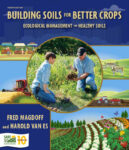 northeast.sare.org news new-edition-of-building-soils-for-better-crops-now-available
northeast.sare.org news new-edition-of-building-soils-for-better-crops-now-available New Edition of "Building Soils for Better Crops" Now Available
The fourth edition of SARE’s most popular book, Building Soils for Better Crops: Ecological Management for Healthy Soils, is now available online and in print. The book covers everything from soil organic matter and nutrient cycles to ecological soil management including sections on cover crops, compost, reduced tillage, addressing fertility issues and more. Building Soils […]
 www.sare.org news updated-building-soils-for-better-crops-focuses-on-soil-health-fundamentals
www.sare.org news updated-building-soils-for-better-crops-focuses-on-soil-health-fundamentals Updated Building Soils for Better Crops Focuses on Soil Health Fundamentals
SARE’s newest book, the fourth edition of Building Soils for Better Crops, provides rich detail on ecologically sound practices for developing and maintaining healthy soils. It is a must-read for farmers, educators and students alike.
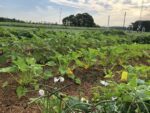 southern.sare.org news intercropping-cowpea-with-vegetables-can-increase-yields
southern.sare.org news intercropping-cowpea-with-vegetables-can-increase-yields Intercropping Cowpea with Vegetables Can Increase Yields
GREENSBORO, North Carolina- Intercropping cowpea with vegetable crops can increase yields up to 50% according to a new report from the Southern Sustainable Agriculture Research and Education program. Cowpea is a nitrogen-fixing legume originally domesticated in Africa. Known for its black-eyed peas that are common in southern cooking, it has a high tolerance for sandy, […]
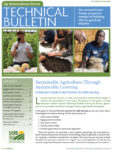 www.sare.org news new-sare-bulletin-highlights-best-practices-for-adult-learning
www.sare.org news new-sare-bulletin-highlights-best-practices-for-adult-learning New SARE Bulletin Highlights Best Practices for Adult Learning
Studies show that farmers learn best through in-person, face-to-face educational programs. But learning opportunities often miss the mark due to content choice, disorganization or lack of understanding of participants' learning styles. Educators that use best adult learning practices have a greater effect on participants’ learning and retention, and empower farmers to make sustainable changes to […]
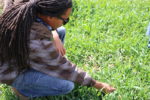 southern.sare.org news 2022-professional-development-program-grant-applications-now-being-accepted
southern.sare.org news 2022-professional-development-program-grant-applications-now-being-accepted 2022 Professional Development Program Grant Applications Now Being Accepted
GRIFFIN, Georgia – The Call for Pre-proposals for the Southern SARE Professional Development Program (PDP) Grant is now open. The Professional Development Program is a “train the trainer” program, providing funding to agricultural professionals to train Cooperative Extension agents, USDA field personnel, and other ag professionals and educators in areas of sustainable agriculture production practices. […]
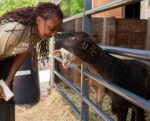 southern.sare.org news sustainable-agriculture-leadership-program-supports-historically-underserved-farmers-and-ranchers
southern.sare.org news sustainable-agriculture-leadership-program-supports-historically-underserved-farmers-and-ranchers Sustainable Agriculture Leadership Program Supports Historically Underserved Farmers and Ranchers
This program seeks to champion the leadership contributions of those who serve historically underserved audiences within the Southern region. Participants receive sponsorship support to conduct education or training activities about sustainable agriculture.
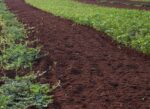 southern.sare.org news new-research-sheds-light-on-the-potential-of-carbon-farming-in-texas
southern.sare.org news new-research-sheds-light-on-the-potential-of-carbon-farming-in-texas New Research Sheds Light on the Potential of Carbon Farming in Texas
Beginning in 2017, the Southern Sustainable Agriculture Research and Education program funded a grant project to study these questions and assembled a Texas-based team of university researchers, soil scientists, farmers, ranchers and specialists from the USDA.
 southern.sare.org news southern-sare-seeking-nominations-for-sustainable-agriculture-leadership-program
southern.sare.org news southern-sare-seeking-nominations-for-sustainable-agriculture-leadership-program Southern SARE Seeking Nominations for Sustainable Agriculture Leadership Program
GRIFFIN, Georgia – The Southern Sustainable Agriculture Research and Education program is seeking nominations for its Sustainable Agriculture Leadership Program for summer 2021. The application deadline is June 1, 2021. The Sustainable Agriculture Leadership Program, launched last year, recognizes the community leadership contributions of historically underserved farmers and ranchers and the community groups and NGOs […]
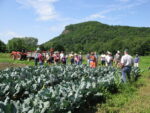 northeast.sare.org news northeast-sare-now-accepting-preproposals-for-2022-projects
northeast.sare.org news northeast-sare-now-accepting-preproposals-for-2022-projects Northeast SARE Now Accepting Preproposals for 2022 Projects
The Northeast Sustainable Agriculture Research and Education (SARE) program is seeking preproposals for three grant programs: Research and Education, Professional Development and Research for Novel Approaches. Grants are aimed at improving sustainable agriculture and local food systems throughout the Northeast and Mid-Atlantic. Preproposals, which capture the preliminary project concept, are required for each grant program […]
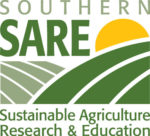 southern.sare.org news ssare-offering-free-webinar-on-sustainable-ag-grant-opportunities-for-ag-researchers
southern.sare.org news ssare-offering-free-webinar-on-sustainable-ag-grant-opportunities-for-ag-researchers SSARE Offering Free Webinar on Sustainable Agriculture Grant Opportunities for Agriculture Researchers
GRIFFIN, Georgia – The Southern Sustainable Agriculture Research and Education (SSARE) program will be offering a free webinar this summer discussing its On-Farm Research Grants program. “Building Relationships Between Researchers and Farmers in Sustainable Ag” is designed for ag professionals in the Southern region interested in partnering with farmers/ranchers on sustainable agriculture research. On-Farm Research […]